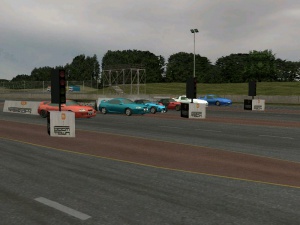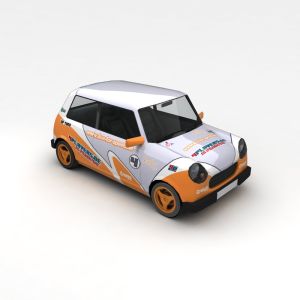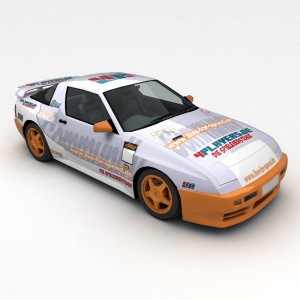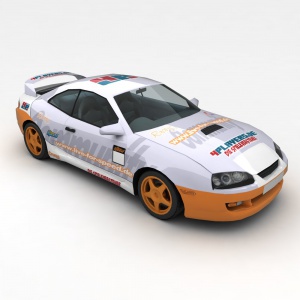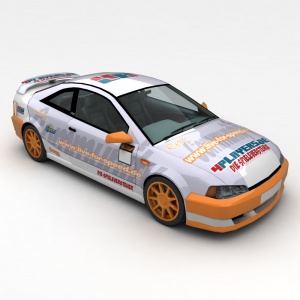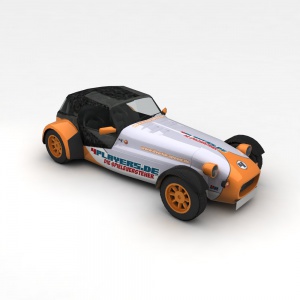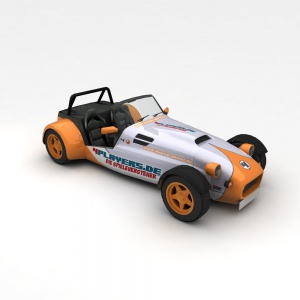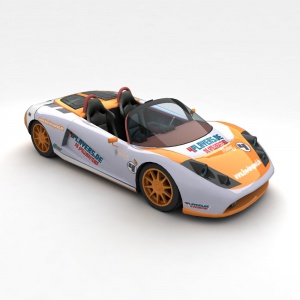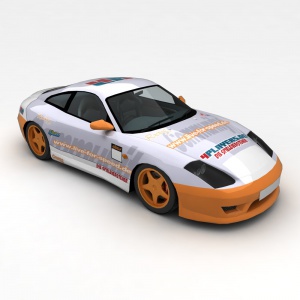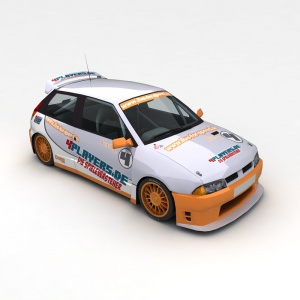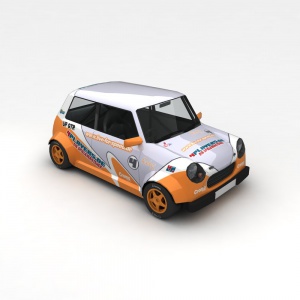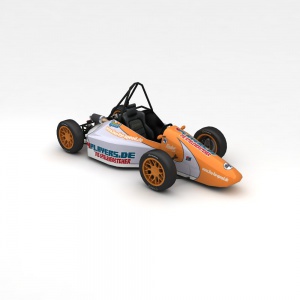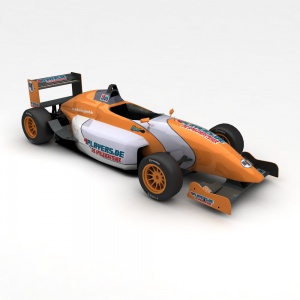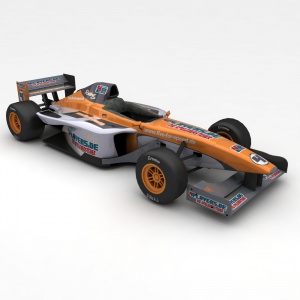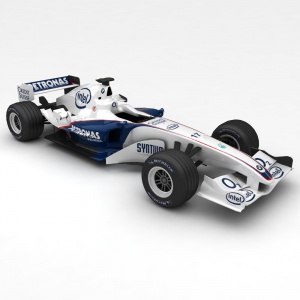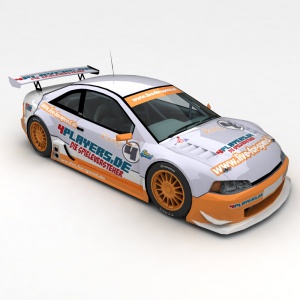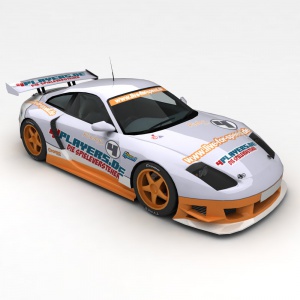Différences entre versions de « Voitures »
(→S1) |
|||
| Ligne 137: | Ligne 137: | ||
* Surgonflez les pneus arrières pour compenser le sous-virage. | * Surgonflez les pneus arrières pour compenser le sous-virage. | ||
| − | |||
| − | |||
| − | |||
| − | |||
| − | |||
| − | |||
| − | |||
| − | |||
| − | |||
| − | |||
| − | |||
| − | |||
| − | |||
| − | |||
| − | |||
| − | |||
| − | |||
| − | |||
| − | |||
| − | |||
| − | |||
| − | |||
| − | |||
| − | |||
| − | |||
| − | |||
| − | |||
| − | |||
| − | |||
| − | |||
| − | |||
| − | |||
| − | |||
| − | |||
=== XR GT Turbo (XRT) === | === XR GT Turbo (XRT) === | ||
Version du 18 décembre 2007 à 16:39
Sommaire
LFS S2 compte au total 19 véhicules. Elles peuvent être classées en différentes catégories.
FR
XFG & XRG : Une traction citadine et un coupé propulsion avec environ 125 chevaux par tonne.
TBO
XRT, FXO & RB4: Des coupés soprts turbocompressés mus par 205ch/t. Une traction, une propulsion et une quatre roues motrices.
LRF
LX6, RAC & FZ5: Se rapprochant de la catégorie TBO. Toutes des propulsions. Ce genre de véhicules est très différent en terme de poids et de puissance. Elles vont de 250 à 310 ch/t. Certaines favorisent l'accélération et la maniabilité alors que d'autres se débrouillent mieux en vitesse de pointe.
Traction GTR
XFR, UFR: Environ 300ch/ton.
Propulsion GTR
FXR, XRR & FZR: Voitures de courses identiques aux Super GT japonaises (anciennement JGTC) classe GT500. Environ 410ch/t.
Route
Voitures de série.
Course
Voitures de course.
S1
| Voitures S1 | ||||||
|---|---|---|---|---|---|---|
| Model | Abbrev | Layout | Drive | Engine | Output | Weight |
| XF GTI | XFG | FF hatchback | FWD | 1.3 L inline-4 | 86 kW (115 hp) | 940 kg (2073 lb) |
| XR GT | XRG | FR coupe | RWD | 1.8 L inline-4 | 104 kW (140 hp) | 1150 kg (2536 lb) |
| XR GT Turbo | XRT | FR coupe | RWD | 2.0 L turbo inline-4 | 184 kW (247 hp) | 1223 kg (2695 lb) |
| RB4 GT | RB4 | 4WD coupe | AWD | 2.0 L turbo inline-4 | 181 kW (243 hp) | 1228 kg (2707 lb) |
| FXO Turbo | FXO | FF coupe | FWD | 1.9 L turbo flat-4 | 175 kW (234 hp) | 1140 kg (2512 lb) |
| LX4 | LX4 | FR roadster | RWD | 1.3 L inline-4 | 105 kW (140 hp) | 499 kg (1101 lb) |
| LX6 | LX6 | FR roadster | RWD | 1.8 L inline-6 | 142 kW (190 hp) | 539 kg (1188 lb) |
| MRT5 | MRT | MR single seater | RWD | 600 cc turbo inline-4 | 48 kW (64 hp) | 221 kg (486 lb) |
| Formula BMW | FBM | MR formula | RWD | 1.2 L inline-4 | 105 kW (140 hp) | 465 kg (1024 lb) |
- XF GTI (XFG) - Traction de type berline, semblable a une berline europeenne de type peugeot 106 ou Golf GTI
- XR GT (XRG) - Propulsion a moteur avant , semblable a une Porsche 944 ou Mazda RX-7
- XR GT Turbo (XRT) - XR GT avec un plus gros moteur et un turbo
- RB4 GT (RB4) - 4 roue motrice, coupe a moteur avant, semblable a une Toyota Supra ou Celica GT4
- FXO Turbo (FXO) - Traction, coupe a moteur avant, semblable a une Open Astra Coupe
- LX4 - Propulsion, moteur avant, LFS a sa personnelle replique de Lotus Seven, pas trop semblable auxCatermhams et Westfields
- LX6 - Comme une LX4, Cette voiture a une moteur plus puissant, avec son poids plume, vous nous pouvez imaginer la facon dont elle accellere
- MRT5 (MRT) - Petite monoplace de course une peu plus large qu'un kart, base sur la reelle MRT5 construite par le McGill Racing Team pour concourir dans le championnat Formula SAE
- Formula BMW (FBM) - Formula BMW FB02
Il est important de noter que dans de nombreuses ligues etc. le terme "TBO" est utilise. C'est simplement une classe de 3 voitures qui inclue les RB4, FXO and XRT.
S2
| S2 cars | ||||||
|---|---|---|---|---|---|---|
| Model | Abbrev | Layout | Drive | Engine | Output | Weight |
| UF 1000 | UF1 | FF hatchback | FWD | 1.0 L inline-4 | 41 kW (55 hp) | 600 kg (1322 lb) |
| RaceAbout | RAC | MR convertible | RWD | 2.0 L turbo inline-4 | 183 kW (245 hp) | 800 kg (1763 lb) |
| FZ50 | FZ5 | RR coupe | RWD | 3.6 L boxer-6 | 269 kW (360 hp) | 1380 kg (3042 lb) |
| XF GTR | XFR | FF race car | FWD | 2.0 L inline-4 | 172 kW(230 hp) | 840 kg (1851 lb) |
| UF GTR | UFR | FF race car | FWD | 1.4 L inline-4 | 134 kW (180 hp) | 600 kg (1323 lb) |
| Formula XR | FOX | MR formula | RWD | 2.0 L inline-4 | 142 kW (190 hp) | 490 kg (1079 lb) |
| Formula V8 | FO8 | MR formula | RWD | 3.0 L V8 | 335 kW (450 hp) | 600 kg (1324 lb) |
| BMW Sauber F1 | BF1 | MR formula | RWD | 2.4 L V8 | 537 kW (720 hp) | 530 kg (1169 lb) |
| FXO GTR | FXR | 4WD race car | AWD | 2.0 L turbo boxer-4 | 365 kW (490 hp) | 1120 kg (2470 lb) |
| XR GTR | XRR | FR race car | RWD | 2.0 L turbo inline-4 | 365 kW (490 hp) | 1100 kg (2426 lb) |
| FZ50 GTR | FZR | RR race car | RWD | 3.6 L boxer-6 | 365 kW (490 hp) | 1100 kg (2424 lb) |
- UF 1000 (UF1) - Petite voiture à traction, similaire à la Mini
- Raceabout (RAC) - Voiture open-top à propulsion, basée sur la véritable RaceAbout'02 fabriquée par les étudiants de l'Université de Finlande.
- FZ50 (FZ5) - Propulsion, moteur en position arrière, identique à une Porsche 911.
- XF GTR (XFR) - Légère et puissante version racing de la XF GTI équipée de pneus slick.
- UF GTR (UFR) - Version puissante de la UF 1000. Train plus large et pneus slick
- Formula XR (FOX) - Petite voiture de course, similaire à une Formule Renault 2000
- Formula V8 (FO8) - Voiture de course basée sur une Formule 3000 / GP2
- BMW Sauber (BF1) - Une création basée sur la version 2006 de BMW Sauber Formula One racecar
- FXO GTR (FXR) - Voiture 4 roues motrices, version racing de la FXO Turbo, équipée d'ailerons. Similaire aux GT500
- XR GTR (XRR) - Version racing plus légère que la XR GT Turbo, avec ailerons.
- FZ50 GTR (FZR) - Version racing plus légère que la FZ50 Turbo, avec ailerons
Détails des voitures
UF 1000 (UF1)
Moteur à l'avant, Traction
Moteur : 1.0 litre - 4 cylindres en ligne
Puissance: 41 kW (55 ch) @ 5589 rpm
Couple: 88 Nm (65 lbft) @ 3009 rpm
poids : 600 kg (1323 lbs) (572 kg (1262 lbs) Open Top)
Rapport poids/puissance: 69 W/kg (93 ch/ton) (72 W/kg (98 ch/ton) Open Top)
Distribution du poids: 59.9 av 40.1 ar (61.2 av 38.8 ar Open Top)
Capacité du réservoir : 35 L
Le véhicule le moins puissant mais pas le moins amusant. En fait, on rencontre les courses les plus serrées avec cette voiture. Cepandant, elle est inadaptée aux circuits rapides.
Conseils :
- Des amortisseurs plus durs permettent de compenser l'absence de barre anti-roulis et aident à mettre les pneus en température.
- Surgonflez les pneus arrières pour compenser le sous-virage.
XR GT Turbo (XRT)
Moteur en position avant, propulsion
Moteur : 2.0 litre turbocompressé - 4 cylindres en ligne
Puissance : 183 kW (245ch) @ 6019 rpm
Couple : 325 Nm (239 lbft) @ 4585 rpm
Poids : 1224 kg (2699 lbs)
Rapport poids/puissance : 150 W/kg (204 ch/t)
Distribution du poids: 52.5 av 47.5 ar
Capacité du réservoir : 75 L
Prenez la XR GT, mettez-y un 2 litres, ajoutez-y un turbo, améliorez la carrosserie et la XR GT Turbo est née ! Bien que décriée à cause du décalage du turbo, elle se conduit en douceur une fois que vous vous serez habitués au maniement du turbo et à la conduite générale du véhicule. Les vieux de la vieille l'appellent encore la GTT.
Conseil :
- Elle est un peu sous-vireuse. Mais une fois que vous aurez appris à anticiper le décalage du turbo, vous trouverez la plus puissante des XR GT.
RB4 GT (RB4)
Moteur en position avant, 4 roues motrices
Moteur : 2.0 - 4 cylindres en ligne
Puissance : 181 kW (243bhp) @ 6021 rpm
Couple : 340 Nm (250 lbft) @ 3886 rpm
Poids Total : 1235 Kg (2723 lbs)
Rapport poids-puissance : 147 W/kg (200 ch/T)
Distribution du poids : 56.4 av 43.6 ar
Capacité du réservoir : 75 L
La seule voiture 4 roues motrices. Cela fait d'elle la voiture idéale pour le rallycross. La RB4 est également très amusante à conduire sur le bitume mais elle est de fait moins rapide que les GTT et la FXO à cause des limitations imposées par la forme même du 4X4. C'est la voiture la plus facile à conduire des trois.
Conseil :
- Le sous-virage est votre ennemi dans ce véhicule. Réglez les suspensions avec sagesse.
FXO TURBO (FXO)
Moteur en position avant, Traction
Moteur : 1.9 L Turbo - 4 cylindres à plat
Puissance : 175 kW (234 ch) @ 6365 rpm
Couple : 305 Nm (224 lbft) @ 4338 rpm
Poids total : 1132 kg (2495 lbs)
Rapport poids-puissance: 154 W/kg (210 ch/t)
Distribution de masses : 59.3 av 40.7 ar
Capacité du réservoir : 75 L
Une des voitures les plus utilisées dans S1. Elle est très accessible et très amusante. Facile à conduire, c'est une traction assez à conduire. Ses pneus larges et son poids raisonnable lui donnent une tenue de route impeccable. Toutefois, elle a des difficultés dans les lignes droites.
LX4 (LX4)
Moteur en position avant, propulsion
Moteur : 1.3 L - 4 cylindres en ligne
Puissance : 105 kW (140 ch) @ 8212 rpm
Couple : 131 Nm (97 lbft) @ 6917 rpm
Poids total : 499 kg
Rapport poids-puissance : 210 W/kg (286 ch/T)
Répartition des masses : 45.8 av 54.2 ar
Capacité du réservoir de carburant : 40 L
Tipping the scales at a mere 518 kg, the LX4 is a pretty light car and is quite fast around the twisted S1 tracks. Compared to its bigger brother, the LX6, the LX4 is easy to drive and ideal for beginners to learn how to control a LX-style car.
LX4/6 Setup tip: These cars need a fair amount of understeer in the springs to keep the controllable. Don't go silly with the spring rates though. Low tyre pressures are needed. Keep the diff as open as possible on the power side and reasonable well locked on the coast side. Some rear toe comes in very handy here.
LX6 (LX6)
Front engined, rear wheel drive
Engine: 1.8 litre inline 6
Power: 142 kW (190 bhp) @ 8429 rpm
Torque: 173 Nm (128 lbft) @ 7059 rpm
Total Mass: 540 kg (1192 lbs)
Power-weight: 62 W/kg (357 bhp/ton)
Weight dist: 48.3 F 51.7 R
Fuel tank capacity: 40 ltr
Take the LX4, swap the engine for a 1.8 litre inline 6, and you have the LX6. So what's the big deal? It's a touch heavier, has a slightly more balanced weight distribution (due to the heavier lump up front) and, most importantly, more power. It's trickier to drive, so if you've not driven an LX style car before the LX4 is a better starting point. Since the LX8 has been canned, this is the fastest LX style car available in LFS at the moment.
RaceAbout (RAC)
Mid engined, rear wheel drive
Engine: 2.0 litre turbocharged inline 4
Power: 183 kW (245 bhp) @ 5879 rpm
Torque: 360 Nm (265 lbft) @ 3500 rpm
Total Mass: 800 kg (1763 lbs)
Power-weight: 228 W/kg (311 bhp/ton)
Weight dist: 40.0 F 60.0 R
Fuel tank capacity: 42 ltr
Website: http://www.raceabout.fi
Really existing prototype of a sportscar from Finland powered by a mid-mounted turbocharged Saab engine. Hard to be driven on the limit.
Setup tip: The lack of rear antiroll bar can make this awkward to setup. Don't put too much understeer into the springs or the car will push too much. No need to go silly with the front antiroll bar either, although a healthy amount is still recommended. Keep the suspension fairly soft too.
FZ50 (FZ5)
Rear engined, rear wheel drive
Engine: 3.6 litre flat 6
Power: 269 kW (360 bhp) @ 7588 rpm
Torque: 392 Nm (288 lbft) @ 5019 rpm
Total Mass: 1379 kg (3041 lbs)
Power-weight: 195 W/kg (265 bhp/ton)
Weight dist: 38.0 F 62.0 R
Fuel tank capacity: 90 ltr
This is the fastest road car available in LFS, favoring top speed over handling. Its high weight, high power and rearward weight distribution make for an challenging, yet entertaining drive. Go take it for a spin and make those tyres squeal. Setup tip: Doesn't actually need that much understeer. Heavy engine braking is the main issue, so most importantly have the differential very tight on the coast side to help with off throttle oversteer, and move the brake bias forward to help stability under braking.
XF GTR (XFR)
Front engined, front wheel drive
Engine: 2.0 litre inline 4
Power: 179 kW (240 bhp) @ 7242 rpm
Torque: 270 Nm (198 lbft) @ 5178 rpm
Total Mass: 836 kg (1843 lbs)
Power-weight: 214 W/kg (292 bhp/ton)
Weight dist: 62.3 F 37.7 R
Fuel tank capacity: 70 ltr
Take everyone's favourite hot hatch, stick slicks on it, thrown in a beastly 2.0 engine, throw out some weight, then clad it in some mean racecar bodywork and this is what you end up with. The most powerful FWD car in LFS, it brings a whole new meaning to the phrase "power understeer". Requires smooth driving. Is a competitor to the UF GTR.
XF/UF GTR setup tip: Wheelspin frying the front tyres is the main nightmare behind these cars, so keep the suspension soft, lock the differential as far as it will go on the power side and use the coast side to control lift off oversteer. Keep zero toe on the front wheels, and keep tyre pressures LOW. Although this makes the tyres easier to heat up, the extra grip will be more beneficial in preventing wheelspin, so in fact the tyres will generally be cooler.
UF GTR (UFR)
Front engined, front wheel drive
Engine: 1.4 litre inline 4
Power: 134 kW (180 bhp) @ 8246 rpm
Torque: 178 Nm (131 lbft) @ 5870 rpm
Total Mass: 600 kg (1323 lbs)
Power-weight: 223 W/kg (304 bhp/ton)
Weight dist: 64.6 F 35.4 R
Fuel tank capacity: 60 ltr
While it has less power than it's competitor, the XF GTR, it's lack of weight more than makes up for this. On twistier circuits it will eat the XF GTR (and a couple of sets of tyres), but loses out on the straights. Certainly requires smooth driving. Whoever said Minis were boring?
MRT 5 (MRT)
Mid engined, rear wheel drive
Engine: 600 cc turbocharged inline 4
Power: 48 kW (64 bhp) @ 7894 rpm
Torque: 69 Nm (51 lbft) @ 5071 rpm
Total Mass: 221 kg (486 lbs)
Power-weight: 217 W/kg (296 bhp/ton)
Weight dist: 37.5 F 62.5 R
Fuel tank capacity: 20 ltr
Website: http://www.fsae.mcgill.ca
Based on the real MRT5 built by the McGill Racing Team and competing in the Formula SAE championship this lightweight car is ideal for autocross tracks and slow configurations. The MRT5 is fun to drive and reminds you of a kart although it has more power and a differential.
Setup tip: This car is best with SOFT suspension. Understeer is certainly not needed in the springs, it hurts turning too much. Just adjust antiroll bars to get the balance you want. Also, this car is extremely sensitive to differential settings. Use the viscous differential and keep it fairly open (low single digits). Very low tyre pressures. Rear toe comes in handy again here.
Formula XR (FOX)
Mid engined, rear wheel drive
Engine: 2.0 litre inline 4
Power: 142 kW (190 bhp) @ 7032 rpm
Torque: 221 Nm (162 lbft) @ 4964 rpm
Total Mass: 490 kg (1079 lbs)
Power-weight: 290 W/kg (395 bhp/ton)
Weight dist: 45.0 F 55.0 R
Fuel tank capacity: 38 ltr
Based upon a Formula Renault 2000 racecar, this car serves as a nice introduction to the cars with downforce. The relatively low power of the engine makes the car easy to drive once up to speed. Insane fun on twisty tracks.
Setup tip: Actually needs a bit of a loose setup, this will help with low speed cornering. Adjust downforce to keep the rear in place at higher speeds. Due to it's low power, it's best to keep wing angles low for most tracks.
Formula V8 (FO8)
Mid engined, rear wheel drive
Engine: 3.0 litre V8
Power: 341 kW (458 bhp) @ 8972 rpm
Torque: 401 Nm (295 lbft) @ 7059 rpm
Total Mass: 600 kg (1323 lbs)
Power-weight: 568 W/kg (775 bhp/ton)
Weight dist: 45.0 F 55.0 R
Fuel tank capacity: 125 ltr
Based upon a Formula 3000 racecar, this is the second fastest but most difficult car to drive in LFS. Once mastered though, it offers great rewards to the driver. It's no Formula One car but don't let that fool you into thinking this isn't one awesome car. Just look at that power-to-weight figure! Suffice to say, the acceleration is incredible. It can pull over 3Gs in the bends. And if it stopped any quicker it would hurt (well, more-so). Only drive it if you have the balls.
Setup tip: Like the FOX, you don't really need much understeer, just use downforce to keep the rear in place. High tyre pressures work well on this car.
BMW Sauber F1 (BF1)
Mid engined, rear wheel drive
Engine: 2.4 litre V8
Power: 537 kW (720 bhp) @ 19076 rpm
Torque: 284 Nm (209 lbft) @ 16817 rpm
Total Mass: 530 kg (1169 lbs)
Power-weight: 1011 W/kg (1378 bhp/ton)
Weight dist: 46.3 F 53.7 R
Fuel tank capacity: 95 ltr
The real BMW Sauber F1.06. Incredibly fast in every way. You'll need to drive absolutely on the limit to get the most out of it. You don't need to lift or even use a gearstick for shifting - the onboard electronics will do it faster than you ever could.
Setup tip: Stiff suspension is way to go here, the tyres flex enough you just don't need the springs to. This also means you can use stiff anti-roll bars without screwing up the handling. High wing angles are needed to increase traction and make use of all that power. The traction control, although for girls, is definately useful to stop you pushing too hard. 4% is a good beginners limit, the more manly you feel, the higher you can go. Hardcore players like to leave it off all-together.
FXO GTR (FXR)
Front engined, all wheel drive
Engine: 2.0 litre turbocharged flat 4
Power: 365 kW (490 bhp) @ 6278 rpm
Torque: 627 Nm (461 lbft) @ 4782 rpm
Total Mass: 1130 kg (2492 lbs)
Power-weight: 323 W/kg (441 bhp/ton)
Weight dist: 57.5 F 42.5 R
Fuel tank capacity: 100 ltr
The FXO GTR is the easiest of the GTR cars to drive, thanks to its stable handling and four-wheel drive. Unfortunately it's also the slowest over a single lap. In the hands of a skilled driver it can usually beat most comers, but even the best FXO GTR driver can't catch a well-driven FZ50 GTR or XR GTR in a sprint race. In endurance races the playing field is leveled somewhat, as the FXO GTR is easier on its tires than the other two GTR cars and has superior fuel economy. Ultimately the FXO GTR is a great car for somebody just getting used to the extra power offered by the GTR cars or for somebody who just wants to have some fun in the GTR class, but if you want wins and don't like long races you have to move to one of the rear-wheel drive GTR cars.
Setup tip: Need a little oversteer for this car, and send plenty of the torque rearward to keep tyre temperatures equal front and rear. Best keep the differential locking fairly light on the coast side to help turn in, which is this cars main strength.
XR GTR (XRR)
Front engined, rear wheel drive
Engine: 2.0 litre turbocharged inline 4
Power: 365 kW (490 bhp) @ 6278 rpm
Torque: 627 Nm (461 lbft) @ 4782 rpm
Total Mass: 1100 kg (2424 lbs)
Power-weight: 332 W/kg (453 bhp/ton)
Weight dist: 55.4 F 44.6 R
Fuel tank capacity: 100 ltr
Is the XR GT Turbo not man enough for you? Slicks, wings, silly power and an angry face, this car has had the works done to it. Nobody knows what the LFS tuning division did to the turbocharger to get double the power out of the engine, but it works, and we are forever thankful. It likes to eat FXO GTRs for breakfast, so watch out.
XR/FZ50 GTR setup tip: Not much understeer needed for these cars, again just use downforce for high speed stability. Need to keep the differential fairly tight so you can put down all that power. Highish tyre pressures at the rear, less at the front.
FZ50 GTR (FZR)
Rear engined, rear wheel drive
Engine: 3.6 litre flat 6
Power: 365 kW (490 bhp) @ 8106 rpm
Torque: 503 Nm (370 lbft) @ 5267 rpm
Total Mass: 1100 kg (2425 lbs)
Power-weight: 332 W/kg (452 bhp/ton)
Weight dist: 35.3 F 64.7 R
Fuel tank capacity: 100 ltr
This is what happens when a not-so-sane person looks at the FZ50 and says "Mmm, nice, but could do with a bit more power." 130bhp more to be exact. Like the XR GTR, it was given slicks, downforce, gorgeous looks and lightened, but just ended up better. Not for the faint hearted, since it will do it's best to rip it out the first time you drive it.
Car Steering Wheel Lock Angles
720°
All of these cars use the full 720 degrees of rotation
XFG, XRG, XRT, RB4, FXO, LX4, LX6, UF1, UFR, XFR, FZ5
540°
These cars use a reduced lock of just 1.5 turns lock to lock
XRR, FXR, FZR
450°
These cars use 1.25 turns lock to lock
FO8, BF1
270°
The only car to use less than one full turn, required a flick of 0.75 turns lock to lock
MRT

